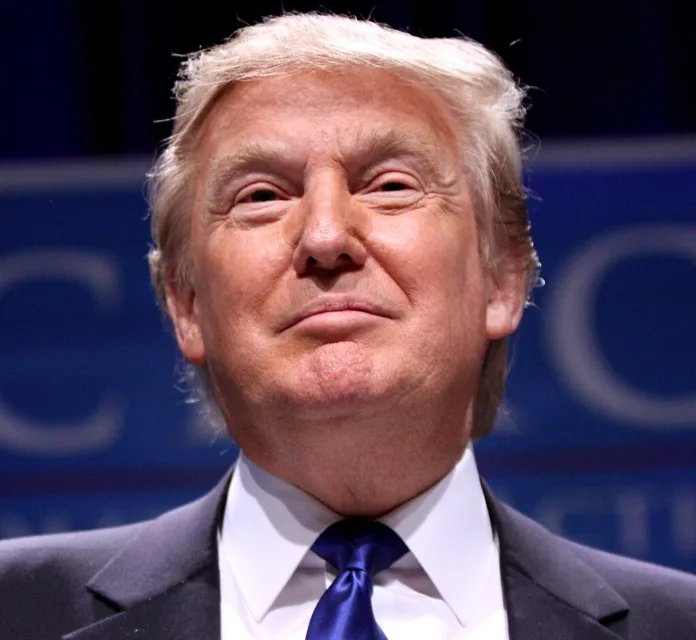President-elect’s ambitious plans for a “Department of Government Efficiency” aim to reduce federal bureaucracy, but key details remain unclear
In a bold and unconventional move, President-elect Donald J. Trump has appointed two prominent entrepreneurs—Elon Musk and Vivek Ramaswamy—to lead his new initiative aimed at overhauling the federal government. This initiative, dubbed the “Department of Government Efficiency,” promises to drastically cut government size and streamline its operations, with a focus on reducing bureaucracy and achieving greater efficiency across federal agencies. Trump has referred to the project as the “Manhattan Project” of this era, with an ambitious deadline to make significant cuts by July 4, 2026, coinciding with the 250th anniversary of the Declaration of Independence.
In a statement released Tuesday, Trump outlined his vision for a “smaller government, with more efficiency and less bureaucracy,” calling it “the perfect gift to America” on the nation’s milestone anniversary. Despite the lofty goals, the announcement has raised more questions than answers, with critics and analysts wondering how this ambitious plan will be executed—and whether it’s a serious undertaking or a campaign promise in disguise.
Musk, the founder of Tesla and SpaceX, alongside Ramaswamy, a former pharmaceutical executive and former presidential candidate, are tasked with leading this dramatic overhaul. Trump expressed his confidence in their ability to succeed, but details about the department’s structure, staff, and funding remain unclear. For one, no such department currently exists within the U.S. government, leaving many wondering whether a new bureaucracy will be created to streamline the existing ones or whether it will simply involve advisory roles.
Embed from Getty ImagesMusk’s involvement in government efficiency raises further concerns, especially given his business interests. Over the past decade, SpaceX, one of Musk’s companies, has secured over $10 billion in federal contracts. Tesla, another of his ventures, has also benefited from government incentives, including substantial tax credits. Musk’s new role could create a significant conflict of interest, with Musk overseeing agencies that regulate his own companies. The statement issued by Trump made it clear that Musk’s role would be as an external adviser, suggesting he would not take a formal government position. However, the specifics of how this would work remain murky.
The bold announcement by Trump reflects his longstanding desire to cut federal spending and reduce what he perceives as inefficiencies within the government. Musk, who has become one of Trump’s biggest supporters and financial backers, had previously promised to help the president-elect trim $2 trillion from the federal budget. However, Musk has yet to provide concrete details on how such monumental cuts would be achieved or which areas of government would face the sharpest reductions.
Musk’s comments about the project were equally vague, stating that the changes would “send shockwaves through the system” and would target “anyone involved in government waste, which is a lot of people.” While Musk’s business acumen and innovative thinking are often praised, critics have raised concerns about his ability to balance his private business interests with his role in overseeing the federal bureaucracy. There are also questions about how Musk’s personal wealth and business dealings will intersect with his advisory role, especially considering that several of his companies are currently facing multiple federal investigations.
Ramaswamy, who has built a successful career in the pharmaceutical industry and ran for president in 2024, is seen as another key figure in Trump’s efforts to reshape the government. Ramaswamy, who has long advocated for deregulation, may play a central role in advising Trump on how to cut back on federal regulations, particularly in sectors where the government is seen as impeding innovation.
While the exact scope of the Department of Government Efficiency is still unclear, Trump’s statement suggested that the new department would provide advice and guidance “from outside of government,” which may indicate that Musk and Ramaswamy will serve in an advisory capacity rather than assuming full-fledged government positions. This leaves the question of how much authority they will wield and whether their recommendations will have the teeth to actually reduce the size of the federal workforce, streamline government agencies, and eliminate waste.
Despite the uncertainties surrounding the initiative, the announcement has sparked debate among both supporters and critics. Proponents of government reform have welcomed the appointment of Musk and Ramaswamy, citing their business success and track record of challenging established systems. However, critics warn that without clear accountability and a concrete plan, the initiative risks becoming little more than a high-profile publicity stunt.
As the 2026 deadline approaches, it remains to be seen whether Trump’s ambitious government overhaul will come to fruition—or whether it will end up as another grandiose promise that fades away with time.
